Latest Sheet Music
Maria Grever
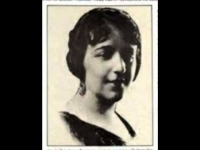
María Grever was the first female Mexican composer to achieve international acclaim. She is best known for the song "What A Difference A Day Makes", which was popularized by Dinah Washington and has been covered by numerous artists.
Vivaldi

Antonio Lucio Vivaldi (March 4, 1678 â July 28, 1741), nicknamed il Prete Rosso ("The Red Priest"), was a Venetian priest and Baroque music composer, as well as a famous virtuoso violinist; he was born and raised in the Republic of Venice. The Four Seasons, a series of four violin concerti, is his best-known work and a highly popular Baroque piece.
Many of Vivaldi's compositions reflect a flamboyant, almost playful, exuberance. Most of Vivaldi's repertoire was rediscovered only in the first half of the 20th century in Turin and Genoa and was published in the second half. Vivaldi's music is innovative, breaking a consolidated tradition in schemes; he gave brightness to the formal and the rhythmic structure of the concerto, repeatedly looking for harmonic contrasts and innovative melodies and themes. Moreover, Vivaldi was able to compose nonacademic music, particularly meant to be appreciated by the wide public and not only by an intellectual minority. The joyful appearance of his music reveals in this regard a transmissible joy of composing; these are among the causes of the vast popularity of his music. This popularity soon made him famous in other countries such as France which was, at the time, very independent concerning its musical taste.
Vivaldi is considered one of the composers who brought Baroque music (with its typical contrast among heavy sonorities) to evolve into a classical style. Johann Sebastian Bach was deeply influenced by Vivaldi's concertos and arias (recalled in his Johannes Passion, Matthäuspassion, and cantatas). Bach transcribed a number of Vivaldi's concerti for solo keyboard, along with a number for orchestra, including the famous Concerto for Four Violins and Violoncello, Strings and Continuo (RV 580).
Many of Vivaldi's compositions reflect a flamboyant, almost playful, exuberance. Most of Vivaldi's repertoire was rediscovered only in the first half of the 20th century in Turin and Genoa and was published in the second half. Vivaldi's music is innovative, breaking a consolidated tradition in schemes; he gave brightness to the formal and the rhythmic structure of the concerto, repeatedly looking for harmonic contrasts and innovative melodies and themes. Moreover, Vivaldi was able to compose nonacademic music, particularly meant to be appreciated by the wide public and not only by an intellectual minority. The joyful appearance of his music reveals in this regard a transmissible joy of composing; these are among the causes of the vast popularity of his music. This popularity soon made him famous in other countries such as France which was, at the time, very independent concerning its musical taste.
Vivaldi is considered one of the composers who brought Baroque music (with its typical contrast among heavy sonorities) to evolve into a classical style. Johann Sebastian Bach was deeply influenced by Vivaldi's concertos and arias (recalled in his Johannes Passion, Matthäuspassion, and cantatas). Bach transcribed a number of Vivaldi's concerti for solo keyboard, along with a number for orchestra, including the famous Concerto for Four Violins and Violoncello, Strings and Continuo (RV 580).
Nobuo Uematsu

Nobuo Uematsu (植松伸夫 Uematsu Nobuo?, born March 21, 1959) is a Japanese video game composer and musician, best known for scoring the majority of titles in the Final Fantasy series. He is regarded as one of the most famous and respected composers in the video game community. Uematsu is a self-taught musician; he began to play the piano at the age of eleven or twelve, with Elton John as his biggest influence.
Uematsu joined Square (later Square Enix) in 1985, where he met Final Fantasy creator Hironobu Sakaguchi. They have worked together on numerous titles, most notably the games in the Final Fantasy series. After nearly 20 years in the company, he left Square Enix in 2004 and founded his own company called Smile Please, as well as the music production company Dog Ear Records. He has since composed music as a freelancer for video games primarily developed by Square Enix and Sakaguchi's development studio Mistwalker.
A handful of soundtracks and arranged albums of Uematsu's game scores have been released. Pieces from his video game works have been performed in concerts worldwide, and numerous Final Fantasy concerts have also been held. He has worked with Grammy Award-winning conductor Arnie Roth on several of these concerts. In 2002, he formed a rock band with colleagues Kenichiro Fukui and Tsuyoshi Sekito called The Black Mages, in which Uematsu plays the keyboard. The band plays arranged rock versions of Uematsu's Final Fantasy compositions.
Uematsu joined Square (later Square Enix) in 1985, where he met Final Fantasy creator Hironobu Sakaguchi. They have worked together on numerous titles, most notably the games in the Final Fantasy series. After nearly 20 years in the company, he left Square Enix in 2004 and founded his own company called Smile Please, as well as the music production company Dog Ear Records. He has since composed music as a freelancer for video games primarily developed by Square Enix and Sakaguchi's development studio Mistwalker.
A handful of soundtracks and arranged albums of Uematsu's game scores have been released. Pieces from his video game works have been performed in concerts worldwide, and numerous Final Fantasy concerts have also been held. He has worked with Grammy Award-winning conductor Arnie Roth on several of these concerts. In 2002, he formed a rock band with colleagues Kenichiro Fukui and Tsuyoshi Sekito called The Black Mages, in which Uematsu plays the keyboard. The band plays arranged rock versions of Uematsu's Final Fantasy compositions.
Andrew Lloyd Webber

Andrew Lloyd Webber, Baron Lloyd-Webber (born 22 March 1948) is an English composer of musical theatre, the elder son of organist William Lloyd Webber and brother of the cellist Julian Lloyd Webber. Lloyd Webber started composing at the age of six, and published his first piece at the age of nine.
Lloyd Webber has achieved great popular success, with several musicals that have run for more than a decade both in the West End and on Broadway. He has composed 13 musicals, a song cycle, a set of variations, two film scores, and a Latin Requiem Mass. He has also gained a number of honours, including a knighthood in 1992, followed by a peerage from the British Government for services to Music, seven Tony Awards (and 40 nominations), three Grammy Awards (with an additional 60 nominations), an Academy Award (two other nominations), seven Olivier Awards (with 100 nominations), a Golden Globe, and the Kennedy Center Honors in 2006. Several of his songs, notably "The Music of the Night" from The Phantom of the Opera, "I Don't Know How to Love Him" from Jesus Christ Superstar, "Don't Cry for Me, Argentina" from Evita, "Any Dream Will Do" from Joseph and the Amazing Technicolor Dreamcoat and "Memory" from Cats have been widely recorded and were hits outside of their parent musicals. His company, the Really Useful Group, is one of the largest theatre operators in London.
Producers in several parts of the UK have staged productions, including national tours, of Lloyd Webber's musicals under licence from the Really Useful Group. According to britishhitsongwriters.com, he is the one hundredth most successful songwriter in U.K. singles chart history, based on weeks that his compositions have spent on the chart.
Lloyd Webber has achieved great popular success, with several musicals that have run for more than a decade both in the West End and on Broadway. He has composed 13 musicals, a song cycle, a set of variations, two film scores, and a Latin Requiem Mass. He has also gained a number of honours, including a knighthood in 1992, followed by a peerage from the British Government for services to Music, seven Tony Awards (and 40 nominations), three Grammy Awards (with an additional 60 nominations), an Academy Award (two other nominations), seven Olivier Awards (with 100 nominations), a Golden Globe, and the Kennedy Center Honors in 2006. Several of his songs, notably "The Music of the Night" from The Phantom of the Opera, "I Don't Know How to Love Him" from Jesus Christ Superstar, "Don't Cry for Me, Argentina" from Evita, "Any Dream Will Do" from Joseph and the Amazing Technicolor Dreamcoat and "Memory" from Cats have been widely recorded and were hits outside of their parent musicals. His company, the Really Useful Group, is one of the largest theatre operators in London.
Producers in several parts of the UK have staged productions, including national tours, of Lloyd Webber's musicals under licence from the Really Useful Group. According to britishhitsongwriters.com, he is the one hundredth most successful songwriter in U.K. singles chart history, based on weeks that his compositions have spent on the chart.
Yann Tiersen

Guillaume Yann Tiersen (born 23 June 1970) is a French musician and composer known internationally for composing the score to the Jean-Pierre Jeunet movie Amélie. His music is recognized by its use of a large variety of instruments in relatively minimalist compositions, often with a touch of either European classical music or French folk music, using primarily the piano, accordion or violin together with instruments like the melodica, xylophone, toy piano, ondes martenot, harpsichord and typewriter. His musical style is reminiscent of Frédéric Chopin, Erik Satie, Philip Glass and Michael Nyman.
Eugène Bozza

Eugène Joseph Bozza was a French composer and violinist. He remains one of the most prolific composers of chamber music for wind instruments. Bozza’s large ensemble work includes five symphonies, operas, ballets, large choral work, wind band music, concertos, and much work for large brass or woodwind ensembles.
Carlos Campos
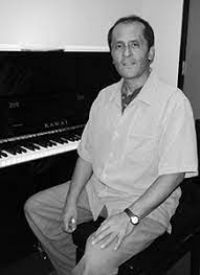
Carlos Campos Musical artist Albums: Carlos Campos Y Su Orquesta, MORE Songs Palillos Chinos 15 Éxitos · 1992
Las Carmelitas Concierto en el Gran Salón Centro de Convenciones Tlatelolco (En Vivo) · 2019 Zacatlán Carlos Campos Y Su Orquesta · 1991
Las Carmelitas Concierto en el Gran Salón Centro de Convenciones Tlatelolco (En Vivo) · 2019 Zacatlán Carlos Campos Y Su Orquesta · 1991
Bach

Johann Sebastian Bach (31 March 1685 – 28 July 1750) was a German composer and organist whose sacred and secular works for choir, orchestra, and solo instruments drew together the strands of the Baroque period and brought it to its ultimate maturity. Although he introduced no new forms, he enriched the prevailing German style with a robust contrapuntal technique, an unrivalled control of harmonic and motivic organisation in composition for diverse musical forces, and the adaptation of rhythms and textures from abroad, particularly Italy and France.
Revered for their intellectual depth and technical and artistic beauty, Bach's works include the Brandenburg concertos; the Goldberg Variations; the English Suites, French Suites, Partitas, and Well-Tempered Clavier; the Mass in B Minor; the St. Matthew Passion; the St. John Passion; The Musical Offering; The Art of Fugue; the Sonatas and Partitas for violin solo; the Cello Suites; more than 200 surviving cantatas; and a similar number of organ works, including the celebrated Toccata and Fugue in D Minor.
While Bach's fame as an organist was great during his lifetime, he was not particularly well-known as a composer. His adherence to Baroque forms and contrapuntal style was considered "old-fashioned" by his contemporaries, especially late in his career when the musical fashion tended towards Rococo and later Classical styles. A revival of interest and performances of his music began early in the 19th century, and he is now widely considered to be one of the greatest composers in the Western tradition.
Revered for their intellectual depth and technical and artistic beauty, Bach's works include the Brandenburg concertos; the Goldberg Variations; the English Suites, French Suites, Partitas, and Well-Tempered Clavier; the Mass in B Minor; the St. Matthew Passion; the St. John Passion; The Musical Offering; The Art of Fugue; the Sonatas and Partitas for violin solo; the Cello Suites; more than 200 surviving cantatas; and a similar number of organ works, including the celebrated Toccata and Fugue in D Minor.
While Bach's fame as an organist was great during his lifetime, he was not particularly well-known as a composer. His adherence to Baroque forms and contrapuntal style was considered "old-fashioned" by his contemporaries, especially late in his career when the musical fashion tended towards Rococo and later Classical styles. A revival of interest and performances of his music began early in the 19th century, and he is now widely considered to be one of the greatest composers in the Western tradition.
Debussy

Achille-Claude Debussy (August 22, 1862 – March 25, 1918) was a French composer. Along with Maurice Ravel, he is considered one of the most prominent figures working within the field of Impressionist music, though he himself intensely disliked the term when applied to his compositions. Debussy was not only among the most important of all French composers but also was a central figure in all European music at the turn of the twentieth century.
Debussy's music virtually defines the transition from late-Romantic music to twentieth century modernist music. In French literary circles, the style of this period was known as Symbolism, a movement that directly inspired Debussy both as a composer and as an active cultural participant.
Debussy's music virtually defines the transition from late-Romantic music to twentieth century modernist music. In French literary circles, the style of this period was known as Symbolism, a movement that directly inspired Debussy both as a composer and as an active cultural participant.
Janet Jackson
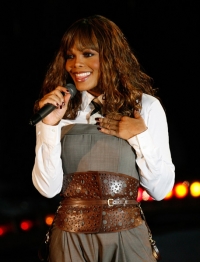
Janet Damita Jo Jackson (born May 16, 1966) is an American recording artist and entertainer. Born in Gary, Indiana and raised in Encino, California, she is the youngest child of the Jackson family of musicians. She first performed on stage with her family beginning at the age of seven, and later started her career as an actress with the variety television series The Jacksons in 1976. She went on to star in other television shows throughout the 1970s and early 1980s, including Good Times and Diff'rent Strokes.
At age sixteen in 1982, Jackson signed a recording contract with A&M, releasing her self-titled debut album the same year. She faced criticism for her limited vocal range, and for being yet another member of the Jackson family to become a recording artist. Beginning with her third studio album Control (1986), Jackson began a long-term collaboration with record producers Jimmy Jam and Terry Lewis. Her music with Jam and Lewis incorporated contemporary R&B with elements of rap music, sample loop, triple swing and industrial beats, which led to crossover appeal in popular music. In addition to receiving recognition for the innovation in her albums, music videos and choreography, Jackson was acknowledged as a role model for her socially conscious lyrics.
In 1991, she signed the first of two record-breaking, multi-million dollar recording contracts with Virgin Records, which established her as one of the highest paid artists in the recording industry. Her debut album under the Virgin label, janet. (1993), saw Jackson develop a public image as a sex symbol as she began to explore sexuality in her music. That same year she appeared in her first starring film role in Poetic Justice; since then she has continued to act in feature films. By the end of the decade Jackson was named the second most successful recording artist of the 1990s. All for You (2001), became her fifth consecutive studio album to debut at number one the Billboard 200 album charts. In 2007, she changed labels, signing with the Island Def Jam Music Group and released her tenth studio album Discipline the following year.
At age sixteen in 1982, Jackson signed a recording contract with A&M, releasing her self-titled debut album the same year. She faced criticism for her limited vocal range, and for being yet another member of the Jackson family to become a recording artist. Beginning with her third studio album Control (1986), Jackson began a long-term collaboration with record producers Jimmy Jam and Terry Lewis. Her music with Jam and Lewis incorporated contemporary R&B with elements of rap music, sample loop, triple swing and industrial beats, which led to crossover appeal in popular music. In addition to receiving recognition for the innovation in her albums, music videos and choreography, Jackson was acknowledged as a role model for her socially conscious lyrics.
In 1991, she signed the first of two record-breaking, multi-million dollar recording contracts with Virgin Records, which established her as one of the highest paid artists in the recording industry. Her debut album under the Virgin label, janet. (1993), saw Jackson develop a public image as a sex symbol as she began to explore sexuality in her music. That same year she appeared in her first starring film role in Poetic Justice; since then she has continued to act in feature films. By the end of the decade Jackson was named the second most successful recording artist of the 1990s. All for You (2001), became her fifth consecutive studio album to debut at number one the Billboard 200 album charts. In 2007, she changed labels, signing with the Island Def Jam Music Group and released her tenth studio album Discipline the following year.
The Notebook
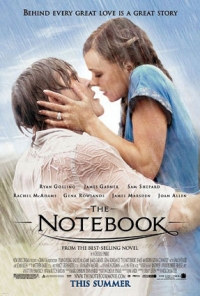
The Notebook is a 2004 romance film directed by Nick Cassavetes based on the novel of the same name by Nicholas Sparks. The film is starring Ryan Gosling, Rachel McAdams and James Garner.
Death Note

Death Note (stylized as DEATH NOTE) is a Japanese manga series written by Tsugumi Ohba and illustrated by Takeshi Obata. The story follows Light Yagami, a teen genius who discovers a mysterious notebook: the "Death Note", which belonged to the Shinigami Ryuk, and grants the user the supernatural ability to kill anyone whose name is written in its pages. The series centers around Light's subsequent attempts to use the Death Note to carry out a worldwide massacre of individuals whom he deems immoral and to create a crime-free society, using the alias of a god-like vigilante named "Kira", and the subsequent efforts of an elite Japanese police task force, led by enigmatic detective L, to apprehend him. Death Note ran in Shueisha's manga magazine Weekly Shōnen Jump from December 2003 to May 2006. Its 108 chapters were collected in 12 tankōbon volumes.
The Legend of Zelda

The Legend of Zelda (Zeruda no Densetsu) is a high fantasy action-adventure video game series created by game designer Shigeru Miyamoto and developed and published by Nintendo. The gameplay consists of a mixture of action, adventure, puzzle solving, role-playing and occasional platforming, stealth and racing elements. The series centers on Link, the main playable character and protagonist. Link is often given the task of rescuing Princess Zelda and the most common setting of the series, Hyrule, from Ganon who is the primary antagonist of the series. However, other settings and antagonists have appeared throughout the games, with Vaati having recently become the series' secondary antagonist. The story commonly involves a relic known as the Triforce, a set of three golden triangles of omnipotence. The protagonist in each game is not always the same iteration of Link, although the same character sometimes appears across multiple games.
The Legend of Zelda series has sold over 52 million copies since the release of the first game, The Legend of Zelda, and continues to be successful worldwide. The series consists of fourteen official games on all of Nintendo's major consoles, as well as several spin-offs. An animated series based on the games aired in 1989, and individual manga adaptions which are officially endorsed and commissioned by Nintendo have been produced in Japan since 1997.
The Legend of Zelda series has sold over 52 million copies since the release of the first game, The Legend of Zelda, and continues to be successful worldwide. The series consists of fourteen official games on all of Nintendo's major consoles, as well as several spin-offs. An animated series based on the games aired in 1989, and individual manga adaptions which are officially endorsed and commissioned by Nintendo have been produced in Japan since 1997.
Real Book

The Real Book refers to compilations of lead sheets for jazz standards. It usually refers to the first volume of a series of books transcribed and collated by Berklee College of Music students during the 1970s.The name is derived from "fake books", so called because they contained only rough outlines of music pieces rather than fully notated scores. Early fake books were often used by professional bands who performed mostly standards, often more geared to society and dance bands rather than jazz ensembles, and devoted much space to show tunes, novelty tunes, traditional jazz, etc. The first three Real Book volumes, in contrast, contained many bebop and other jazz standards that were likely to be encountered on jazz gigs at the time. For this reason, the books were quickly adopted among jazz players in the 1970s, particularly on the east coast.
Now and Then, Here and There
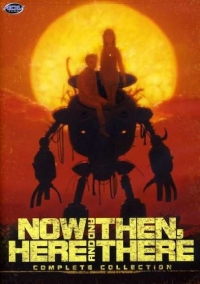
A young boy named Shuzo "Shu" Matsutani rushes to the defense of a young stranger who is being attacked for her magic pendant, only to find himself transported into another world where water is a scarce commodity and he is forced to join an army of children in this Japanese anime.
Traditional

Herman Finkers

Hermenegildus Felix Victor Maria "Herman" Finkers is a Dutch comedian, who is well known in the Netherlands for his friendly, dry-witted humour and his ambiguous style of storytelling. In his way of telling a story the moral should never be in the way of a good joke or pun.
Corpse Bride

Tim Burton's Corpse Bride (often abbreviated as Corpse Bride) is a 2005 stop-motion-animation film based loosely on a 19th century Russian-Jewish folktale version of an older Jewish story and set in a fictional Victorian era village. It was directed by Tim Burton and Mike Johnson, and filmed at 3 Mills Studios in London. Johnny Depp led an all-star cast as the voice of Victor and Helena Bonham Carter (for whom the project was specially created) as the voice of the title character. This is the first animated film in which Johnny Depp has been a voice actor. The film's initial release was two weeks prior to that of Wallace & Gromit: The Curse of the Were-Rabbit, marking the first time that a stop-motion animated film and a claymation animated one were in simultaneous wide theatrical release. Interestingly, both films feature the voice of Helena Bonham Carter in a lead role and a character named Victor. Coincidentally, Burton's first stop-motion film, The Nightmare Before Christmas was released the same year as Nick Park's The Wrong Trousers.
The film was nominated in the 78th Academy Awards for Best Animated Feature. It lost to Wallace & Gromit: The Curse of the Were-Rabbit.
The film is dedicated to the memory of Joe Ranft.
The movie exhibits Burton's trademark style and recurring themes (the complex interaction between light and darkness, and of being caught between two irreconcilable worlds). Life is portrayed as boring and dully gray tinted while death is more fun, as evidenced by the brighter colors and jaunty music. The movie can be particularly compared to The Nightmare Before Christmas, Burton's previous stop-motion feature project (directed by Henry Selick and based on a Tim Burton poem, which Corpse Bride director Mike Johnson worked on as an animator) and Beetlejuice, especially in the scenes depicting the underworld and its deceased denizens. The studio intentionally emphasized the links, as some commercials for Corpse Bride were accompanied by songs from The Nightmare Before Christmas (specifically, "What's This"); also, in an issue of Disney Adventures, Emily (the title character) was compared to The Nightmare Before Christmas's Sally, despite the stark contrasts in personality between the outspoken, free-spirited Emily and the quiet, timid Sally. The Corpse Bride is also considered to be the spiritual successor of The Nightmare Before Christmas.
Most of the characters in the film bear a strong resemblance to the original cast of the British period drama Upstairs, Downstairs. In the "Special Features" section of the DVD, Tim Burton states that the films' setting pays tribute to the series, with the Land of the Living being the "upstairs", and the Land of the Dead being the "downstairs".
The film was nominated in the 78th Academy Awards for Best Animated Feature. It lost to Wallace & Gromit: The Curse of the Were-Rabbit.
The film is dedicated to the memory of Joe Ranft.
The movie exhibits Burton's trademark style and recurring themes (the complex interaction between light and darkness, and of being caught between two irreconcilable worlds). Life is portrayed as boring and dully gray tinted while death is more fun, as evidenced by the brighter colors and jaunty music. The movie can be particularly compared to The Nightmare Before Christmas, Burton's previous stop-motion feature project (directed by Henry Selick and based on a Tim Burton poem, which Corpse Bride director Mike Johnson worked on as an animator) and Beetlejuice, especially in the scenes depicting the underworld and its deceased denizens. The studio intentionally emphasized the links, as some commercials for Corpse Bride were accompanied by songs from The Nightmare Before Christmas (specifically, "What's This"); also, in an issue of Disney Adventures, Emily (the title character) was compared to The Nightmare Before Christmas's Sally, despite the stark contrasts in personality between the outspoken, free-spirited Emily and the quiet, timid Sally. The Corpse Bride is also considered to be the spiritual successor of The Nightmare Before Christmas.
Most of the characters in the film bear a strong resemblance to the original cast of the British period drama Upstairs, Downstairs. In the "Special Features" section of the DVD, Tim Burton states that the films' setting pays tribute to the series, with the Land of the Living being the "upstairs", and the Land of the Dead being the "downstairs".
Kelly Clarkson
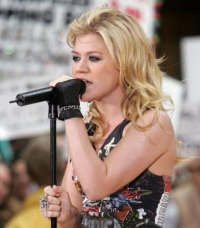
Kelly Brianne Clarkson (born April 24, 1982) is an American pop rock singer, songwriter, and occasional actress. Clarkson made her debut under RCA Records after she won the highly-publicized first season of the television series American Idol in 2002. She was originally marketed as a pop musician with her debut album Thankful (2003). With the release of her multi-platinum second album Breakaway (2004), Clarkson moved to a more pop rock-oriented style of music. Clarkson's third album, entitled My December, was released on June 26, 2007. Her fourth album is due in fall 2008. Clarkson has sold over 19 million albums worldwide. Clarkson is the most successful American Idol alumna, with eight of her singles becoming Top 10 hits on the Billboard Hot 100. In 2008, she joined Vh1's list of 10 sexiest women of the new millennium at #8. She also hit #28 on Vh1's Top 30 Hottest Rock Front women.
a-ha
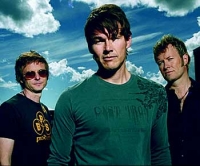
a-ha is a band from Norway. They initially rose to fame during the 1980s and have had continued success in the 1990s and 2000s.
a-ha achieved their biggest success with their debut album and single in 1985. Hunting High and Low peaked at number fifteen on the Billboard charts and yielded an international number-one single, "Take on Me", earning the band a Grammy Award nomination as Best New Artist. Hunting High and Low was one of the best-selling albums of 1986. In 1994, the band went on a hiatus, the same year a-ha reached a sales number of 20 million albums sold worldwide. After a performance at the Nobel Peace Prize Concert in 1998, the band returned to the studio and recorded 2000's Minor Earth Major Sky, which resulted in a new tour. By 2000, they had reached 36 million albums sold wordwide plus a double figure million singles. In 2002 the band released their seventh studio album Lifelines. 2005's Analogue has been certified silver and is their most successful album in the UK since 1990's East of the Sun, West of the Moon. Their 9th album, Foot of the Mountain, was released on June 19, 2009 (release date different in some countries).
a-ha achieved their biggest success with their debut album and single in 1985. Hunting High and Low peaked at number fifteen on the Billboard charts and yielded an international number-one single, "Take on Me", earning the band a Grammy Award nomination as Best New Artist. Hunting High and Low was one of the best-selling albums of 1986. In 1994, the band went on a hiatus, the same year a-ha reached a sales number of 20 million albums sold worldwide. After a performance at the Nobel Peace Prize Concert in 1998, the band returned to the studio and recorded 2000's Minor Earth Major Sky, which resulted in a new tour. By 2000, they had reached 36 million albums sold wordwide plus a double figure million singles. In 2002 the band released their seventh studio album Lifelines. 2005's Analogue has been certified silver and is their most successful album in the UK since 1990's East of the Sun, West of the Moon. Their 9th album, Foot of the Mountain, was released on June 19, 2009 (release date different in some countries).
Alicia Keys

Alicia J. Augello-Cook (born January 25, 1981), and has won numerous awards, including eleven Grammy Awards, seventeen Billboard Music Awards, three American Music Awards.
Her debut album Songs in A Minor was a worldwide success, selling nearly 11 millions albums, and received five Grammy Awards in 2002, with Alicia winning Best New Artist and also Song of the Year for "Fallin'".
Her debut album Songs in A Minor was a worldwide success, selling nearly 11 millions albums, and received five Grammy Awards in 2002, with Alicia winning Best New Artist and also Song of the Year for "Fallin'".
Reefer Madness
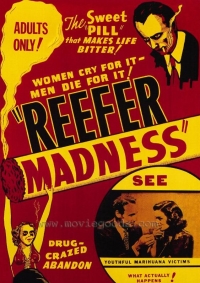
Reefer Madness is a musical satire of the 1936 cult classic Reefer Madness that opened in Los Angeles in 1998. The book and lyrics were written by Kevin Murphy and the music by Dan Studney. Directed by Andy Fickman, it was initially shown in a theatre in Los Angeles and then moved to the New York "Off-Broadway" scene. The show opened Off Broadway on September 15, 2001, and closed shortly thereafter. A film version was made for TV in 2005. Rodgers and Hammerstein Theatricals now administers the stock/amateur rights, and the show has been produced by local theatre groups in several cities, including Toronto, Seattle, Philadelphia and London. The 2008 production at Washington DC's Studio Theatre won 2 Helen Hayes Awards (directing and outstanding Resident Production). The show made its Australasian debut in Sydney on July 24 2008 and will have a production in London in 2009.
Otto Lindblad
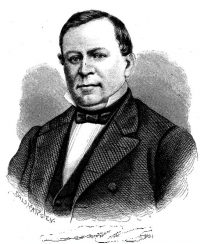
Otto Lindblad (March 31, 1809 - January 26, 1864), was a Swedish composer. He is most famous for the musical score of Kungssången, the Swedish royal anthem.
Otto Lindblad was the son of a clergyman. He grew up on the patronage in Karlstorp and attended gymnasium in Växjö. In 1829 he began academic studies at the University of Lund. In Lund, he formed a group with A. E. Christernin and J. Meurling, together with whom he played and sang a type of three part music pieces. The group became known as the "musical trefoil band". In 1836 he ended his studies and fully devoted his time to music. Two years later he formed the Lund Student Singers Association. On December 5, 1844 he presented the Royal Anthem for the first time, at a celebration for King Oscar I.
In 1846 Lindblad undertook a national tour with the noted Lund Quartet. The tour's revenue was to have been used for student housing in Lund, but the profit was too small and they only managed to bring home 1500 Riksdaler. In the spring of 1847 he took up the position of parish clerk and organist in Mellby. He married Emma Andersson in 1855. Their only child, a daughter, died as an infant. Otto Lindblad died at the age of 55 years, following a long period of illness.
Otto Lindblad was the son of a clergyman. He grew up on the patronage in Karlstorp and attended gymnasium in Växjö. In 1829 he began academic studies at the University of Lund. In Lund, he formed a group with A. E. Christernin and J. Meurling, together with whom he played and sang a type of three part music pieces. The group became known as the "musical trefoil band". In 1836 he ended his studies and fully devoted his time to music. Two years later he formed the Lund Student Singers Association. On December 5, 1844 he presented the Royal Anthem for the first time, at a celebration for King Oscar I.
In 1846 Lindblad undertook a national tour with the noted Lund Quartet. The tour's revenue was to have been used for student housing in Lund, but the profit was too small and they only managed to bring home 1500 Riksdaler. In the spring of 1847 he took up the position of parish clerk and organist in Mellby. He married Emma Andersson in 1855. Their only child, a daughter, died as an infant. Otto Lindblad died at the age of 55 years, following a long period of illness.
Cabaret
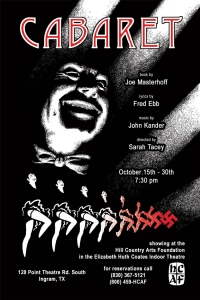
Cabaret is a musical with a book by Joe Masteroff, lyrics by Fred Ebb, and music by John Kander. The 1966 Broadway production became a hit and spawned an acclaimed 1972 film as well as numerous subsequent productions.
Originally entitled Welcome to Berlin, it is based on John Van Druten's play I Am a Camera, which in turn was adapted from the novel Goodbye to Berlin, by Christopher Isherwood. Set in 1929-1930 Berlin on the eve of the Nazis' rise to power, it focuses on nightlife at the seedy Kit Kat Klub and mostly revolves around the English 19-year-old cabaret performer Sally Bowles and her relationship with young American writer, Cliff Bradshaw. A sub-plot involves the doomed romance between German boarding house owner Fräulein Schneider and her elderly suitor Herr Schultz, a Jewish fruit vendor. Overseeing the action is the Emcee, who presides as master of ceremonies at the Kit Kat Klub and serves as a constant metaphor for the current state of society in Weimar Germany throughout the show.
Originally entitled Welcome to Berlin, it is based on John Van Druten's play I Am a Camera, which in turn was adapted from the novel Goodbye to Berlin, by Christopher Isherwood. Set in 1929-1930 Berlin on the eve of the Nazis' rise to power, it focuses on nightlife at the seedy Kit Kat Klub and mostly revolves around the English 19-year-old cabaret performer Sally Bowles and her relationship with young American writer, Cliff Bradshaw. A sub-plot involves the doomed romance between German boarding house owner Fräulein Schneider and her elderly suitor Herr Schultz, a Jewish fruit vendor. Overseeing the action is the Emcee, who presides as master of ceremonies at the Kit Kat Klub and serves as a constant metaphor for the current state of society in Weimar Germany throughout the show.
Boots Randolph
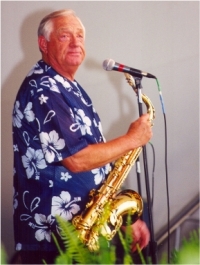
Homer Louis "Boots" Randolph III (June 3, 1927 – July 3, 2007) was an American musician best known for his 1963 saxophone hit "Yakety Sax" (which became Benny Hill's signature tune). Randolph was a major part of the "Nashville sound" for most of his professional career.
Mykola Leontovych

Mykola Dmytrovych Leontovych (Ukrainian: Микола Дмитрович Леонтович; sometimes spelt Leontovich; December 13 1877 – 23 January 1921) was a Ukrainian composer, choral conductor, and teacher of international renown. His music was inspired by Mykola Lysenko and the Ukrainian National Music School. Leontovych specialised in a cappella choral music, ranging from original compositions, to church music, to elaborate arrangements of folk music.
Evanescence

Evanescence is an American rock band founded in Little Rock, Arkansas in 1995 by singer/pianist Amy Lee and guitarist Ben Moody.
After recording two private EPs and a demo CD named Origin, with the help of Bigwig Enterprises in 2000, the band released their first full-length album, Fallen, on Wind-up Records in 2003. Fallen sold more than 15 million copies worldwide and helped the band win two Grammy Awards. A year later, Evanescence released their first live album, Anywhere but Home, which sold more than one million copies worldwide. In 2006, the band released their second studio album, The Open Door, which has sold more than four million copies.
The band has suffered several line-up changes, including co-founder Moody leaving in 2003, followed by guitarist John LeCompt and drummer Rocky Gray in 2007. Lee is now the only original member of Evanescence remaining in the band.
After recording two private EPs and a demo CD named Origin, with the help of Bigwig Enterprises in 2000, the band released their first full-length album, Fallen, on Wind-up Records in 2003. Fallen sold more than 15 million copies worldwide and helped the band win two Grammy Awards. A year later, Evanescence released their first live album, Anywhere but Home, which sold more than one million copies worldwide. In 2006, the band released their second studio album, The Open Door, which has sold more than four million copies.
The band has suffered several line-up changes, including co-founder Moody leaving in 2003, followed by guitarist John LeCompt and drummer Rocky Gray in 2007. Lee is now the only original member of Evanescence remaining in the band.
Michel Camilo
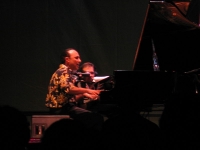
Michel Camilo (born April 4, 1954) is a pianist and composer from Santo Domingo, Dominican Republic. He is known as a great jazz, Latin and classical pianist with superb technical ability, and has played and recorded with many world-famous musicians. Michel lists some of his main influences as Chick Corea, Keith Jarrett, Oscar Peterson, Bill Evans, and Art Tatum.
Jamey Aebersold

Jamey Aebersold (born July 21, 1939 in New Albany, Indiana) is an American jazz saxophonist and music educator. His "Play-A-Long" series of instructional book and CD collections, using the chord-scale system, the first of which was released in 1967, are an internationally renowned resource for jazz education. As of 2009, 126 of these collections have been published by Aebersold, who currently teaches musical improvisation at the University of Louisville. He is also an adept pianist, bassist, and banjoist.
Henry Mancini

Henry Mancini (April 16, 1924 – June 14, 1994) was an American composer, conductor and arranger. He is remembered particularly for being a composer of film and television scores. Mancini also won a record number of Grammy awards, including a Grammy Lifetime Achievement Award in 1995. His best-known works are the jazz-idiom theme to The Pink Panther film series ("The Pink Panther Theme"), the Peter Gunn Theme (from the so-named series) and "Moon River".
Mancini was nominated for an unprecedented 72 Grammys, winning 20. Additionally he was nominated for 18 Academy Awards, winning four. He also won a Golden Globe Award and was nominated for two Emmys.
Mancini won a total of four Oscars for his music in the course of his career. He was first nominated for an Academy Award in 1955 for his original score of The Glenn Miller Story, on which he collaborated with Joseph Gershenson. He lost out to Adolph Deutsch and Saul Chaplin's Seven Brides for Seven Brothers. In 1962 he was nominated in the Best Music, Original Song category for "Bachelor in Paradise" from the film of the same name, in collaboration with lyricist Mack David. That song did not win. However, Mancini did receive two Oscars that year: one in the same category, for the song "Moon River" (shared with lyricist Johnny Mercer), and one for "Best Music, Scoring of a Dramatic or Comedy Picture" for Breakfast at Tiffany's. The following year, he and Mercer took another Best Song award for "Days of Wine and Roses," another eponymous theme song. His next eleven nominations went for naught, but he finally garnered one last statuette working with lyricist Leslie Bricusse on the score for Victor/Victoria, which won the "Best Music, Original Song Score and Its Adaptation or Best Adaptation Score" award for 1983. All three of the films for which he won were directed by Blake Edwards. His score for Victor/Victoria was adapted for the 1995 Broadway musical of the same name.
Mancini was nominated for an unprecedented 72 Grammys, winning 20. Additionally he was nominated for 18 Academy Awards, winning four. He also won a Golden Globe Award and was nominated for two Emmys.
Mancini won a total of four Oscars for his music in the course of his career. He was first nominated for an Academy Award in 1955 for his original score of The Glenn Miller Story, on which he collaborated with Joseph Gershenson. He lost out to Adolph Deutsch and Saul Chaplin's Seven Brides for Seven Brothers. In 1962 he was nominated in the Best Music, Original Song category for "Bachelor in Paradise" from the film of the same name, in collaboration with lyricist Mack David. That song did not win. However, Mancini did receive two Oscars that year: one in the same category, for the song "Moon River" (shared with lyricist Johnny Mercer), and one for "Best Music, Scoring of a Dramatic or Comedy Picture" for Breakfast at Tiffany's. The following year, he and Mercer took another Best Song award for "Days of Wine and Roses," another eponymous theme song. His next eleven nominations went for naught, but he finally garnered one last statuette working with lyricist Leslie Bricusse on the score for Victor/Victoria, which won the "Best Music, Original Song Score and Its Adaptation or Best Adaptation Score" award for 1983. All three of the films for which he won were directed by Blake Edwards. His score for Victor/Victoria was adapted for the 1995 Broadway musical of the same name.
Celine Dion

Céline Marie Claudette Dion (born March 30, 1968 in Charlemagne, Quebec) is a Canadian singer, and occasional songwriter and actress.
Dion had first gained international recognition in the 1980s by winning both the 1982 Yamaha World Popular Song Festival and the 1988 Eurovision Song Contest.
Dion's music has been influenced by genres ranging from rock and R&B to gospel and classical, and while her releases have often received mixed critical reception, she is renowned for her technically skilled and powerful vocals.
Dion had first gained international recognition in the 1980s by winning both the 1982 Yamaha World Popular Song Festival and the 1988 Eurovision Song Contest.
Dion's music has been influenced by genres ranging from rock and R&B to gospel and classical, and while her releases have often received mixed critical reception, she is renowned for her technically skilled and powerful vocals.
Athur Laurent

Arthur Laurents (July 14, 1917 – May 5, 2011) was an American playwright, stage director and screenwriter.
After writing scripts for radio shows after college and then training films for the U.S. Army during World War II, Laurents turned to writing for Broadway, producing a body of work that includes West Side Story (1957), Gypsy (1959), and Hallelujah, Baby! (1967), and directing some of his own shows and other Broadway productions.
His early film scripts include Rope (1948) for Alfred Hitchcock, followed by Anastasia (1956), Bonjour Tristesse (1958), The Way We Were (1973), and The Turning Point (1977).
Contents
1 Early life
2 Theatrical career
3 Film career
4 Blacklist
5 Memoirs
6 Death
7 Work
7.1 Writing
7.2 Directing
7.3 Additional credits
8 Awards, nominations and honors
9 See also
10 References
11 Further reading
12 External links
Early life
Born Arthur Levine, Laurents was the son of middle-class Jewish parents, a lawyer and a schoolteacher who gave up her career when she married. He was born and raised in the Flatbush section of Brooklyn, a borough of New York City, New York, the elder of two children, and attended Erasmus Hall High School. His sister Edith suffered from chorea as a child.
His paternal grandparents were Orthodox Jews, and his mother's parents, although born Jewish, were atheists. His mother kept a kosher home for her husband's sake, but was lax about attending synagogue and observing the Jewish holidays. His Bar Mitzvah marked the end of Laurents's religious education and the beginning of his rejection of all fundamentalist religions, although he continued to identify himself as Jewish. However, late in life he admitted to having changed his last name from Levine to the less Jewish-sounding Laurents, "to get a job."
After graduating from Cornell University, Laurents took an evening class in radio writing at New York University. William N. Robson, his instructor, a CBS Radio director/producer, submitted his script Now Playing Tomorrow, a comedic fantasy about clairvoyance, to the network, and it was produced in the Columbia Workshop series on January 30, 1939, with Shirley Booth in the lead role. It was Laurents' first professional credit. The show's success led to him being hired to write scripts for various radio shows, among them Lux Radio Theater. Laurents' career was interrupted when he was drafted into the U.S. Army in the middle of World War II. Through a series of clerical errors, he never saw battle, but instead was assigned to the U.S. Army Pictorial Service located in a film studio in Astoria, Queens, where he wrote training films and met, among others, George Cukor and William Holden. He later was reassigned to write plays for Armed Service Force Presents, a radio show that dramatized the contributions of all branches of the armed forces.
Theatrical career
According to John Clum, "Laurents was always a mirror of his times. Through his best work, one sees a staged history of leftist, gender, and gay politics in the decades after World War II." After graduating from Cornell University in 1937, Laurents went to work as a writer for radio drama at CBS in New York. His military duties during World War II, which consisted of writing training films and radio scripts for Armed Service Force Presents, brought him into contact with some of the best film directors—distinguished director George Cukor directed his first script. Laurents's work in radio and film during World War II was an excellent apprenticeship for a budding playwright and screenwriter. He also had the good fortune to be based in New York City. His first stage play, Home of the Brave, was produced in 1945. The sale of the play to a film studio gave Laurents the entrée he needed to become a Hollywood screenwriter though he continued, with mixed success, to write plays. The most important of his early screenplays is his adaptation of Rope for Alfred Hitchcock.
Soon after being discharged from the Army, Laurents met ballerina Nora Kaye, and the two became involved in an on-again, off-again romantic relationship. While Kaye was on tour with Fancy Free, Laurents continued to write for the radio but was becoming discontented with the medium. At the urging of Martin Gabel, he spent nine consecutive nights writing a play In 1962, Laurents directed I Can Get It for You Wholesale, which helped to turn then-unknown Barbra Streisand into a star. His next project was the stage musical Anyone Can Whistle, which he directed and for which he wrote the book, but it proved to be an infamous flop. He later had success with the musicals Hallelujah, Baby! (written for Lena Horne but ultimately starring Leslie Uggams) and La Cage Aux Folles (1983), which he directed, however Nick & Nora was not successful.
In 2008, Laurents directed a Broadway revival of Gypsy starring Patti LuPone, and in 2009, he tackled a bilingual revival of West Side Story, with Spanish translations of some dialogue and lyrics by Lin-Manuel Miranda. While preparing West Side Story, he noted, "The musical theatre and cultural conventions of 1957 made it next to impossible for the characters to have authenticity." Following the production's March 19 opening at the Palace Theatre, Ben Brantley of The New York Times called the translations "an only partly successful experiment" and added, "Mr. Laurents has exchanged insolence for innocence and, as with most such bargains, there are dividends and losses." The national tour (2011-2012) was directed by David Saint, who was Laurents' assistant director on the Broadway production. The Spanish lyrics and dialog were reduced from about 18% of the total to about 10%.
Film career
Laurents' first Hollywood experience proved to be a frustrating disappointment. Director Anatole Litvak, unhappy with the script submitted by Frank Partos and Millen Brand for The Snake Pit (1948), hired Laurents to rewrite it. Partos and Brand later insisted the bulk of the shooting script was theirs, and produced carbon copies of many of the pages Laurents actually had written to bolster their claim. Having destroyed the original script and all his notes and rewritten pages after completing the project, Laurents had no way to prove most of the work was his, and the Writers Guild of America denied him screen credit. Brand later confessed he and Partos had copied scenes written by Laurents and apologized for his role in the deception. Four decades later, Laurents learned he was ineligible for WGA health benefits because he had failed to accumulate enough credits to qualify. He was short by one, the one he failed to get for The Snake Pit.
Upon hearing 20th Century Fox executives were pleased with Laurents' work on The Snake Pit, Alfred Hitchcock hired him for his next project, the film Rope starring James Stewart. Hitchcock wanted Laurents to Americanize the British play Rope (1929) by Patrick Hamilton for the screen. With his then-lover Farley Granger set to star, Laurents was happy to accept the assignment. His dilemma was how to make the audience aware of the fact the three main characters were homosexual without blatantly saying so. The Hays Office kept close tabs on his work, and the final script was so discreet that Laurents was unsure whether co-star James Stewart ever realized that his character was gay. In later years, Hitchcock asked him to script both Torn Curtain (1966) and Topaz (1969), However, Laurents, in both cases unenthused by the material, declined the offers.
Laurents also scripted Anastasia (1956) and Bonjour Tristesse (1958). The Way We Were (1973), in which he incorporated many of his own experiences, particularly those with the HUAC, reunited him with Barbra Streisand, and The Turning Point (1977), inspired in part by his love for Nora Kaye, was directed by her husband Herbert Ross. The Fox animated feature film Anastasia (1997) was based in part from his screenplay of the live-action 1956 film of the same title.
Blacklist
Because of a casual remark made by Russel Crouse, Laurents was called to Washington, D.C., to account for his political views. He explained himself to the House Un-American Activities Committee, and his appearance had no obvious impact on his career, which at the time was primarily in the theatre. When the McCarran Internal Security Act, which prohibited individuals suspected of engaging in subversive activities from obtaining a passport, was passed in 1950, Laurents and Granger immediately applied for and received passports and departed for Paris with Harold Clurman and his wife Stella Adler. Laurents and Granger remained abroad, traveling throughout Europe and northern Africa, for about 18 months.
Years earlier, Laurents and Jerome Robbins had developed Look Ma, I'm Dancin'! (1948), a stage musical about the world of ballet that ran for 188 performances on Broadway, and starred Nancy Walker and Harold Lang. (Although the musical was ultimately produced with a book by Jerome Lawrence and Robert E. Lee, as Laurents left the project.) Robbins approached Paramount Pictures about directing a screen version, and the studio agreed as long as Laurents was not part of the package.
It was not until then that Laurents learned he officially had been blacklisted, primarily because a review of Home of the Brave had been published in the Daily Worker. He decided to return to Paris, but the State Department refused to renew his passport. Laurents spent three months trying to clear his name, and after submitting a lengthy letter explaining his political beliefs in detail, it was determined they were so idiosyncratic he could not have been a member of any subversive groups. Within a week his passport was renewed, and the following day he sailed for Europe on the Ile de France. While on board, he received a cable from Metro-Goldwyn-Mayer offering him a screenwriting assignment. The blacklist had ended.
Memoirs
Laurents wrote Original Story By Arthur Laurents: A Memoir of Broadway and Hollywood, published in 2000. In it, he discusses his lengthy career and his many gay affairs and long-term relationships, including those with Farley Granger and Tom Hatcher (August 24, 1929 - October 26, 2006). Hatcher was an aspiring actor whom Gore Vidal suggested Laurents seek out at the Beverly Hills men's clothing store Hatcher was managing at the time. The couple remained together for 52 years until Hatcher's death on October 26, 2006.
Laurents wrote Mainly on Directing: Gypsy, West Side Story and Other Musicals, published in 2009, in which he discussed musicals he directed and the work of other directors he admired.
His last memoir titled The Rest of the Story was published posthumously in September 2012.
Death
Laurents died at the age of 93 at his home in Manhattan on May 5, 2011 of pneumonia complications, as reported by The New York Times. Following a long tradition, Broadway theatre lights were dimmed at 8 p.m. on May 6, 2011, for one minute in his memory. His ashes were buried alongside those of Tom Hatcher in a memorial bench in Quogue, Long Island, New York.
Work
Writing
Musicals
West Side Story – 1957 – Tony Nomination for Best Musical
Gypsy – 1959 – Tony Nomination for Best Musical
Anyone Can Whistle – 1964
Do I Hear a Waltz? – 1965
Hallelujah, Baby! – 1967 – Tony Award for Best Musical
The Madwoman of Central Park West – 1979
Nick & Nora – 1991
Novel
The Turning Point – 1977; New American Library (New York City); OCLC 11014907
Plays
Home of the Brave – 1945
The Bird Cage – 1950
The Time of the Cuckoo – 1952
A Clearing in the Woods – 1957
Invitation to a March – 1960
Directing
Invitation to a March – 1960
I Can Get It for You Wholesale – 1962
Anyone Can Whistle – 1964
Gypsy – 1974 – Tony Nomination for Best Direction of a Musical
The Madwoman of Central Park West – 1979
La Cage aux Folles – 1983 – Tony Award for Best Direction of a Musical
Nick & Nora – 1991
Gypsy – 2008 – Tony Award nomination as Best Director of a Musical
West Side Story – 2009 Broadway Revival
Additional credits
Anna Lucasta (screenwriter)
A Clearing in the Woods (playwright)
Invitation to a March (playwright, director)
The Madwoman of Central Park West (playwright, director)
My Good Name (playwright)
Jolson Sings Again (playwright)
The Enclave (playwright, director)
Radical Mystique (playwright, director)
Big Potato (playwright)
Two Lives (playwright)
My Good Name (playwright)
Claudia Lazlo (playwright)
Attacks on the Heart (playwright)
2 Lives (playwright)
New Year's Eve (playwright)
Come Back, Come Back, Wherever You Are (playwright, director)
Caught (screenwriter)
Rope (screenwriter)
Awards, nominations and honors
A new award was established in 2010, The Laurents/Hatcher Foundation Award. This is awarded annually "for an un-produced, full-length play of social relevance by an emerging American playwright." The Laurents/Hatcher Foundation will give $50,000 to the writer with a grant of $100,000 towards production costs at a nonprofit theatre. The first award will be given in 2011.
Theatre
1958 Tony Award for Best Musical (West Side Story, nominee)
1960 Tony Award for Best Musical (Gypsy, nominee)
1968 Tony Award for Best Musical (Hallelujah, Baby!, winner)
1975 Drama Desk Award for Outstanding Director of a Musical (Gypsy, winner)
1975 Tony Award for Best Direction of a Musical (Gypsy, nominee)
1984 Tony Award for Best Direction of a Musical (La Cage aux Folles, winner)
2008 Tony Award for Best Direction of a Musical (Gypsy, nominee)
Film
Academy Award for Best Picture (The Turning Point, nominee)
Academy Award for Best Original Screenplay (The Turning Point, nominee)
Edgar Allan Poe Award for Best Motion Picture Screenplay (Rope, nominee)
Golden Globe Award for Best Screenplay (The Turning Point, nominee)
Writers Guild of America Award for Best Original Screenplay (The Way We Were, nominee; The Turning Point, winner)
National Board of Review Award for Career Achievement (winner)
See also
Biography portal
Film portal
Musical Theatre portal
icon Theatre portal
icon Writing portal
List of Jewish American playwrights
List of novelists from the United States
List of pneumonia victims
List of people from Brooklyn, New York
List of playwrights from the United States
List of theatre directors
References
"Legendary Writer & Director Arthur Laurents Dies at 93". Broadway World. Retrieved May 6, 2011.
John M. Clum. The Works of Arthur Laurents: Politics, Love, and Betrayal. Amherst, NY: Cambria Press, 2014.
"Obituaries: Arthur Laurents". The Daily Telegraph. May 6, 2011.
"When You’re a Shark You’re a Shark All the Way". New York.
Hawtree, Christopher (May 6, 2011). "Arthur Laurents obituary: Playwright and screenwriter who wrote the book for West Side Story". The Guardian. Retrieved 6 August 2012.
Hutchinson, Bill (May 6, 2011). "Playwright Behind 'West Side Story' and 'Gypsy,' Arthur Laurents, Dies at Age 93". Daily News.
Arnold, Laurence (May 5, 2011). "Arthur Laurents, Writer of 'West Side Story,' 'Gypsy' Scripts, Dies at 93". Bloomberg News.
Laurents, Arthur. "Beginnings" Original Story By Arthur Laurents: A Memoir of Broadway and Hollywood, Hal Leonard Corporation, 2001, ISBN 1-55783-467-9, pp. 10–11, 34–35.
Laurents, Arthur. Original Story By. New York: Alfred A. Knopf (2000). ISBN 0-375-40055-9, pp. 6–7.
Laurents, p. 133.
Laurents, pp. 12–13.
Laurents, pp. 22–28.
Clum, John, "The Works of Arthur Laurents: Politics, Love, and Betrayal", November 2014, Cambria Press, ISBN 1604978848
Clum, John, "The Works of Arthur Laurents: Politics, Love, and Betrayal"
Laurents, p. 93.
Jones, Kenneth (July 16, 2008). "'West Side Story', This Time With Bilingual Approach, Will Return to Broadway in February 2009". Playbill.
Brantley, Ben (March 20, 2009). "Our Gangs". The New York Times.
Berson, M. (January 8, 2012). "'West Side Story': A classic revived" Archived January 12, 2012, at the Wayback Machine. Seattle Times.
Laurents, pp. 106–120.
Laurents, pp. 115–116, 124–131.
Laurents, p. 136.
""West Side Story Author Arthur Laurents Dies, 93" Archived July 9, 2012, at Archive.today forum.bcdb.com. May 4, 2011.
Laurents, p. 29.
Laurents, pp. 165–190.
Vaill, Amanda (2006). Somewhere: The Life of Jerome Robbins, Random House, Inc. p. 135. ISBN 0-7679-0420-6.
"'Look Ma, I'm Dancin' listing". Internet Broadway Database.
Laurents, pp. 286–289.
"Backstage.com obituary, November 1, 2006". Backstage.
Berkvist, Robert (May 5, 2011). "Arthur Laurents, Playwright and Director on Broadway, Dies at 93". The New York Times.
Jones, Kenneth (May 6, 2011). "Broadway Lights Will Dim May 6 in Memory of Arthur Laurents" Archived October 21, 2012, at the Wayback Machine. Playbill.
Gans, Andrew (June 3, 2010). "New Award Named for Arthur Laurents and His Partner, the Late Tom Hatcher" Archived June 5, 2010, at the Wayback Machine. Playbill.
Further reading
Laurents, Arthur (2000). Original Story by Arthur Laurents: A Memoir of Broadway and Hollywood. New York: Knopf. ISBN 0-375-40055-9.
Laurents, Arthur (2009). Mainly on Directing: Gypsy, West Side Story, and Other Musicals. New York: Knopf. ISBN 0-307-27088-2.
Clum, John (2014). The Works of Arthur Laurents: Politics, Love, and Betrayal. Amherst, NY: Cambria Press. ISBN 978-1-60497-884-1.
External links
Arthur Laurents at the Internet Broadway Database Edit this at Wikidata
Arthur Laurents at the Internet Off-Broadway Database
Arthur Laurents on IMDb
American Theatre Wing biography
Works by or about Arthur Laurents in libraries (WorldCat catalog)
Works by Arthur Laurents at Open Library Edit this at Wikidata
vte
Works by Arthur Laurents
Writer
Musicals
West Side Story (1957) Gypsy (1959) Anyone Can Whistle (1964) Do I Hear a Waltz? (1965) Hallelujah, Baby! (1967) The Madwoman of Central Park West (1979) Nick & Nora (1991)
Plays
Home of the Brave (1945) The Time of the Cuckoo (1952)
Films
Rope (1948) Caught (1949) Anastasia (1956) Bonjour Tristesse (1958) The Way We Were (1973) The Turning Point (1977)
Director
I Can Get It for You Wholesale (1962) Anyone Can Whistle (1964) Gypsy (1974) The Madwoman of Central Park West (1979) La Cage aux Folles (1983) Birds of Paradise (1987) Gypsy (1989) Nick & Nora (1991) Gypsy (2008) West Side Story (2009)
Awards for Arthur Laurents
vte
Arthur Laurents, Leonard Bernstein and Stephen Sondheim's West Side Story (1957)
Characters
Maria
Inspiration
William Shakespeare's Romeo and Juliet
Adaptations
West Side Story (1961 film) West Side Story Suite (1995 ballet) West Side Story (2020 film)
Variations
Deaf Side Story (c. 2002 musical) Swango (2002 musical) West Bank Story (2005 parody film)
Songs
Act 1
"Something's Coming" "Maria" "Tonight" "America" "Cool" "One Hand, One Heart" "Tonight (Quintet & Chorus)"
Act 2
"I Feel Pretty" "Somewhere" "Gee, Officer Krupke" "A Boy Like That"
Albums
West Side Story (1957 original cast) West Side Story (1959 Previn) West Side Story (1961 soundtrack) West Side Story (1961 Tjader) Bernstein Plays Brubeck Plays Bernstein (1961 Brubeck Quartet) West Side Story (1962 Peterson Trio) Kenton's West Side Story (1962 Kenton) Toshiko–Mariano Quartet (in West Side) (1963 Akiyoshi) West Side Story (1974 Earl Hines)
Related
"The First Time" "Upper West Side Story" Wild Side Story China Girl "Roses" Play It Again Josh Superjail!
Authority control Edit this at Wikidata
BNE: XX1122852 BNF: cb140368976 (data) GND: 123286352 ISNI: 0000 0001 1025 0247 LCCN: n85173003 MusicBrainz: e062e9c9-5fd4-4384-ba1d-71495ce3bb7d NKC: xx0026607 NTA: 071341080 SNAC: w6gf56zk SUDOC: 058478094 VIAF: 37116781 WorldCat Identities (via VIAF): 37116781
Categories: 1917 births2011 deathsAmerican memoiristsAmerican musical theatre librettistsAmerican people of World War IIAmerican male screenwritersCornell University alumniDeaths from pneumoniaDrama Desk Award winnersErasmus Hall High School alumniGay writersHollywood blacklistInfectious disease deaths in New York (state)Jewish American novelistsLGBT JewsLGBT memoiristsLGBT writers from the United StatesPeople from Flatbush, BrooklynUnited States Army personnelWriters from New York CityJewish American dramatists and playwrightsAnalysands of Theodor ReikLGBT dramatists and playwrightsLGBT novelistsGolden Globe Award-winning producersAmerican male novelistsLGBT screenwritersLGBT people from New York (state)Tony Award winnersAmerican male dramatists and playwrights20th-century American novelists20th-century American dramatists and playwrightsNovelists from New York (state)20th-century American non-fiction writersAmerican male non-fiction writersScreenwriters from New York (state)American Theater Hall of Fame inductees
After writing scripts for radio shows after college and then training films for the U.S. Army during World War II, Laurents turned to writing for Broadway, producing a body of work that includes West Side Story (1957), Gypsy (1959), and Hallelujah, Baby! (1967), and directing some of his own shows and other Broadway productions.
His early film scripts include Rope (1948) for Alfred Hitchcock, followed by Anastasia (1956), Bonjour Tristesse (1958), The Way We Were (1973), and The Turning Point (1977).
Contents
1 Early life
2 Theatrical career
3 Film career
4 Blacklist
5 Memoirs
6 Death
7 Work
7.1 Writing
7.2 Directing
7.3 Additional credits
8 Awards, nominations and honors
9 See also
10 References
11 Further reading
12 External links
Early life
Born Arthur Levine, Laurents was the son of middle-class Jewish parents, a lawyer and a schoolteacher who gave up her career when she married. He was born and raised in the Flatbush section of Brooklyn, a borough of New York City, New York, the elder of two children, and attended Erasmus Hall High School. His sister Edith suffered from chorea as a child.
His paternal grandparents were Orthodox Jews, and his mother's parents, although born Jewish, were atheists. His mother kept a kosher home for her husband's sake, but was lax about attending synagogue and observing the Jewish holidays. His Bar Mitzvah marked the end of Laurents's religious education and the beginning of his rejection of all fundamentalist religions, although he continued to identify himself as Jewish. However, late in life he admitted to having changed his last name from Levine to the less Jewish-sounding Laurents, "to get a job."
After graduating from Cornell University, Laurents took an evening class in radio writing at New York University. William N. Robson, his instructor, a CBS Radio director/producer, submitted his script Now Playing Tomorrow, a comedic fantasy about clairvoyance, to the network, and it was produced in the Columbia Workshop series on January 30, 1939, with Shirley Booth in the lead role. It was Laurents' first professional credit. The show's success led to him being hired to write scripts for various radio shows, among them Lux Radio Theater. Laurents' career was interrupted when he was drafted into the U.S. Army in the middle of World War II. Through a series of clerical errors, he never saw battle, but instead was assigned to the U.S. Army Pictorial Service located in a film studio in Astoria, Queens, where he wrote training films and met, among others, George Cukor and William Holden. He later was reassigned to write plays for Armed Service Force Presents, a radio show that dramatized the contributions of all branches of the armed forces.
Theatrical career
According to John Clum, "Laurents was always a mirror of his times. Through his best work, one sees a staged history of leftist, gender, and gay politics in the decades after World War II." After graduating from Cornell University in 1937, Laurents went to work as a writer for radio drama at CBS in New York. His military duties during World War II, which consisted of writing training films and radio scripts for Armed Service Force Presents, brought him into contact with some of the best film directors—distinguished director George Cukor directed his first script. Laurents's work in radio and film during World War II was an excellent apprenticeship for a budding playwright and screenwriter. He also had the good fortune to be based in New York City. His first stage play, Home of the Brave, was produced in 1945. The sale of the play to a film studio gave Laurents the entrée he needed to become a Hollywood screenwriter though he continued, with mixed success, to write plays. The most important of his early screenplays is his adaptation of Rope for Alfred Hitchcock.
Soon after being discharged from the Army, Laurents met ballerina Nora Kaye, and the two became involved in an on-again, off-again romantic relationship. While Kaye was on tour with Fancy Free, Laurents continued to write for the radio but was becoming discontented with the medium. At the urging of Martin Gabel, he spent nine consecutive nights writing a play In 1962, Laurents directed I Can Get It for You Wholesale, which helped to turn then-unknown Barbra Streisand into a star. His next project was the stage musical Anyone Can Whistle, which he directed and for which he wrote the book, but it proved to be an infamous flop. He later had success with the musicals Hallelujah, Baby! (written for Lena Horne but ultimately starring Leslie Uggams) and La Cage Aux Folles (1983), which he directed, however Nick & Nora was not successful.
In 2008, Laurents directed a Broadway revival of Gypsy starring Patti LuPone, and in 2009, he tackled a bilingual revival of West Side Story, with Spanish translations of some dialogue and lyrics by Lin-Manuel Miranda. While preparing West Side Story, he noted, "The musical theatre and cultural conventions of 1957 made it next to impossible for the characters to have authenticity." Following the production's March 19 opening at the Palace Theatre, Ben Brantley of The New York Times called the translations "an only partly successful experiment" and added, "Mr. Laurents has exchanged insolence for innocence and, as with most such bargains, there are dividends and losses." The national tour (2011-2012) was directed by David Saint, who was Laurents' assistant director on the Broadway production. The Spanish lyrics and dialog were reduced from about 18% of the total to about 10%.
Film career
Laurents' first Hollywood experience proved to be a frustrating disappointment. Director Anatole Litvak, unhappy with the script submitted by Frank Partos and Millen Brand for The Snake Pit (1948), hired Laurents to rewrite it. Partos and Brand later insisted the bulk of the shooting script was theirs, and produced carbon copies of many of the pages Laurents actually had written to bolster their claim. Having destroyed the original script and all his notes and rewritten pages after completing the project, Laurents had no way to prove most of the work was his, and the Writers Guild of America denied him screen credit. Brand later confessed he and Partos had copied scenes written by Laurents and apologized for his role in the deception. Four decades later, Laurents learned he was ineligible for WGA health benefits because he had failed to accumulate enough credits to qualify. He was short by one, the one he failed to get for The Snake Pit.
Upon hearing 20th Century Fox executives were pleased with Laurents' work on The Snake Pit, Alfred Hitchcock hired him for his next project, the film Rope starring James Stewart. Hitchcock wanted Laurents to Americanize the British play Rope (1929) by Patrick Hamilton for the screen. With his then-lover Farley Granger set to star, Laurents was happy to accept the assignment. His dilemma was how to make the audience aware of the fact the three main characters were homosexual without blatantly saying so. The Hays Office kept close tabs on his work, and the final script was so discreet that Laurents was unsure whether co-star James Stewart ever realized that his character was gay. In later years, Hitchcock asked him to script both Torn Curtain (1966) and Topaz (1969), However, Laurents, in both cases unenthused by the material, declined the offers.
Laurents also scripted Anastasia (1956) and Bonjour Tristesse (1958). The Way We Were (1973), in which he incorporated many of his own experiences, particularly those with the HUAC, reunited him with Barbra Streisand, and The Turning Point (1977), inspired in part by his love for Nora Kaye, was directed by her husband Herbert Ross. The Fox animated feature film Anastasia (1997) was based in part from his screenplay of the live-action 1956 film of the same title.
Blacklist
Because of a casual remark made by Russel Crouse, Laurents was called to Washington, D.C., to account for his political views. He explained himself to the House Un-American Activities Committee, and his appearance had no obvious impact on his career, which at the time was primarily in the theatre. When the McCarran Internal Security Act, which prohibited individuals suspected of engaging in subversive activities from obtaining a passport, was passed in 1950, Laurents and Granger immediately applied for and received passports and departed for Paris with Harold Clurman and his wife Stella Adler. Laurents and Granger remained abroad, traveling throughout Europe and northern Africa, for about 18 months.
Years earlier, Laurents and Jerome Robbins had developed Look Ma, I'm Dancin'! (1948), a stage musical about the world of ballet that ran for 188 performances on Broadway, and starred Nancy Walker and Harold Lang. (Although the musical was ultimately produced with a book by Jerome Lawrence and Robert E. Lee, as Laurents left the project.) Robbins approached Paramount Pictures about directing a screen version, and the studio agreed as long as Laurents was not part of the package.
It was not until then that Laurents learned he officially had been blacklisted, primarily because a review of Home of the Brave had been published in the Daily Worker. He decided to return to Paris, but the State Department refused to renew his passport. Laurents spent three months trying to clear his name, and after submitting a lengthy letter explaining his political beliefs in detail, it was determined they were so idiosyncratic he could not have been a member of any subversive groups. Within a week his passport was renewed, and the following day he sailed for Europe on the Ile de France. While on board, he received a cable from Metro-Goldwyn-Mayer offering him a screenwriting assignment. The blacklist had ended.
Memoirs
Laurents wrote Original Story By Arthur Laurents: A Memoir of Broadway and Hollywood, published in 2000. In it, he discusses his lengthy career and his many gay affairs and long-term relationships, including those with Farley Granger and Tom Hatcher (August 24, 1929 - October 26, 2006). Hatcher was an aspiring actor whom Gore Vidal suggested Laurents seek out at the Beverly Hills men's clothing store Hatcher was managing at the time. The couple remained together for 52 years until Hatcher's death on October 26, 2006.
Laurents wrote Mainly on Directing: Gypsy, West Side Story and Other Musicals, published in 2009, in which he discussed musicals he directed and the work of other directors he admired.
His last memoir titled The Rest of the Story was published posthumously in September 2012.
Death
Laurents died at the age of 93 at his home in Manhattan on May 5, 2011 of pneumonia complications, as reported by The New York Times. Following a long tradition, Broadway theatre lights were dimmed at 8 p.m. on May 6, 2011, for one minute in his memory. His ashes were buried alongside those of Tom Hatcher in a memorial bench in Quogue, Long Island, New York.
Work
Writing
Musicals
West Side Story – 1957 – Tony Nomination for Best Musical
Gypsy – 1959 – Tony Nomination for Best Musical
Anyone Can Whistle – 1964
Do I Hear a Waltz? – 1965
Hallelujah, Baby! – 1967 – Tony Award for Best Musical
The Madwoman of Central Park West – 1979
Nick & Nora – 1991
Novel
The Turning Point – 1977; New American Library (New York City); OCLC 11014907
Plays
Home of the Brave – 1945
The Bird Cage – 1950
The Time of the Cuckoo – 1952
A Clearing in the Woods – 1957
Invitation to a March – 1960
Directing
Invitation to a March – 1960
I Can Get It for You Wholesale – 1962
Anyone Can Whistle – 1964
Gypsy – 1974 – Tony Nomination for Best Direction of a Musical
The Madwoman of Central Park West – 1979
La Cage aux Folles – 1983 – Tony Award for Best Direction of a Musical
Nick & Nora – 1991
Gypsy – 2008 – Tony Award nomination as Best Director of a Musical
West Side Story – 2009 Broadway Revival
Additional credits
Anna Lucasta (screenwriter)
A Clearing in the Woods (playwright)
Invitation to a March (playwright, director)
The Madwoman of Central Park West (playwright, director)
My Good Name (playwright)
Jolson Sings Again (playwright)
The Enclave (playwright, director)
Radical Mystique (playwright, director)
Big Potato (playwright)
Two Lives (playwright)
My Good Name (playwright)
Claudia Lazlo (playwright)
Attacks on the Heart (playwright)
2 Lives (playwright)
New Year's Eve (playwright)
Come Back, Come Back, Wherever You Are (playwright, director)
Caught (screenwriter)
Rope (screenwriter)
Awards, nominations and honors
A new award was established in 2010, The Laurents/Hatcher Foundation Award. This is awarded annually "for an un-produced, full-length play of social relevance by an emerging American playwright." The Laurents/Hatcher Foundation will give $50,000 to the writer with a grant of $100,000 towards production costs at a nonprofit theatre. The first award will be given in 2011.
Theatre
1958 Tony Award for Best Musical (West Side Story, nominee)
1960 Tony Award for Best Musical (Gypsy, nominee)
1968 Tony Award for Best Musical (Hallelujah, Baby!, winner)
1975 Drama Desk Award for Outstanding Director of a Musical (Gypsy, winner)
1975 Tony Award for Best Direction of a Musical (Gypsy, nominee)
1984 Tony Award for Best Direction of a Musical (La Cage aux Folles, winner)
2008 Tony Award for Best Direction of a Musical (Gypsy, nominee)
Film
Academy Award for Best Picture (The Turning Point, nominee)
Academy Award for Best Original Screenplay (The Turning Point, nominee)
Edgar Allan Poe Award for Best Motion Picture Screenplay (Rope, nominee)
Golden Globe Award for Best Screenplay (The Turning Point, nominee)
Writers Guild of America Award for Best Original Screenplay (The Way We Were, nominee; The Turning Point, winner)
National Board of Review Award for Career Achievement (winner)
See also
Biography portal
Film portal
Musical Theatre portal
icon Theatre portal
icon Writing portal
List of Jewish American playwrights
List of novelists from the United States
List of pneumonia victims
List of people from Brooklyn, New York
List of playwrights from the United States
List of theatre directors
References
"Legendary Writer & Director Arthur Laurents Dies at 93". Broadway World. Retrieved May 6, 2011.
John M. Clum. The Works of Arthur Laurents: Politics, Love, and Betrayal. Amherst, NY: Cambria Press, 2014.
"Obituaries: Arthur Laurents". The Daily Telegraph. May 6, 2011.
"When You’re a Shark You’re a Shark All the Way". New York.
Hawtree, Christopher (May 6, 2011). "Arthur Laurents obituary: Playwright and screenwriter who wrote the book for West Side Story". The Guardian. Retrieved 6 August 2012.
Hutchinson, Bill (May 6, 2011). "Playwright Behind 'West Side Story' and 'Gypsy,' Arthur Laurents, Dies at Age 93". Daily News.
Arnold, Laurence (May 5, 2011). "Arthur Laurents, Writer of 'West Side Story,' 'Gypsy' Scripts, Dies at 93". Bloomberg News.
Laurents, Arthur. "Beginnings" Original Story By Arthur Laurents: A Memoir of Broadway and Hollywood, Hal Leonard Corporation, 2001, ISBN 1-55783-467-9, pp. 10–11, 34–35.
Laurents, Arthur. Original Story By. New York: Alfred A. Knopf (2000). ISBN 0-375-40055-9, pp. 6–7.
Laurents, p. 133.
Laurents, pp. 12–13.
Laurents, pp. 22–28.
Clum, John, "The Works of Arthur Laurents: Politics, Love, and Betrayal", November 2014, Cambria Press, ISBN 1604978848
Clum, John, "The Works of Arthur Laurents: Politics, Love, and Betrayal"
Laurents, p. 93.
Jones, Kenneth (July 16, 2008). "'West Side Story', This Time With Bilingual Approach, Will Return to Broadway in February 2009". Playbill.
Brantley, Ben (March 20, 2009). "Our Gangs". The New York Times.
Berson, M. (January 8, 2012). "'West Side Story': A classic revived" Archived January 12, 2012, at the Wayback Machine. Seattle Times.
Laurents, pp. 106–120.
Laurents, pp. 115–116, 124–131.
Laurents, p. 136.
""West Side Story Author Arthur Laurents Dies, 93" Archived July 9, 2012, at Archive.today forum.bcdb.com. May 4, 2011.
Laurents, p. 29.
Laurents, pp. 165–190.
Vaill, Amanda (2006). Somewhere: The Life of Jerome Robbins, Random House, Inc. p. 135. ISBN 0-7679-0420-6.
"'Look Ma, I'm Dancin' listing". Internet Broadway Database.
Laurents, pp. 286–289.
"Backstage.com obituary, November 1, 2006". Backstage.
Berkvist, Robert (May 5, 2011). "Arthur Laurents, Playwright and Director on Broadway, Dies at 93". The New York Times.
Jones, Kenneth (May 6, 2011). "Broadway Lights Will Dim May 6 in Memory of Arthur Laurents" Archived October 21, 2012, at the Wayback Machine. Playbill.
Gans, Andrew (June 3, 2010). "New Award Named for Arthur Laurents and His Partner, the Late Tom Hatcher" Archived June 5, 2010, at the Wayback Machine. Playbill.
Further reading
Laurents, Arthur (2000). Original Story by Arthur Laurents: A Memoir of Broadway and Hollywood. New York: Knopf. ISBN 0-375-40055-9.
Laurents, Arthur (2009). Mainly on Directing: Gypsy, West Side Story, and Other Musicals. New York: Knopf. ISBN 0-307-27088-2.
Clum, John (2014). The Works of Arthur Laurents: Politics, Love, and Betrayal. Amherst, NY: Cambria Press. ISBN 978-1-60497-884-1.
External links
Arthur Laurents at the Internet Broadway Database Edit this at Wikidata
Arthur Laurents at the Internet Off-Broadway Database
Arthur Laurents on IMDb
American Theatre Wing biography
Works by or about Arthur Laurents in libraries (WorldCat catalog)
Works by Arthur Laurents at Open Library Edit this at Wikidata
vte
Works by Arthur Laurents
Writer
Musicals
West Side Story (1957) Gypsy (1959) Anyone Can Whistle (1964) Do I Hear a Waltz? (1965) Hallelujah, Baby! (1967) The Madwoman of Central Park West (1979) Nick & Nora (1991)
Plays
Home of the Brave (1945) The Time of the Cuckoo (1952)
Films
Rope (1948) Caught (1949) Anastasia (1956) Bonjour Tristesse (1958) The Way We Were (1973) The Turning Point (1977)
Director
I Can Get It for You Wholesale (1962) Anyone Can Whistle (1964) Gypsy (1974) The Madwoman of Central Park West (1979) La Cage aux Folles (1983) Birds of Paradise (1987) Gypsy (1989) Nick & Nora (1991) Gypsy (2008) West Side Story (2009)
Awards for Arthur Laurents
vte
Arthur Laurents, Leonard Bernstein and Stephen Sondheim's West Side Story (1957)
Characters
Maria
Inspiration
William Shakespeare's Romeo and Juliet
Adaptations
West Side Story (1961 film) West Side Story Suite (1995 ballet) West Side Story (2020 film)
Variations
Deaf Side Story (c. 2002 musical) Swango (2002 musical) West Bank Story (2005 parody film)
Songs
Act 1
"Something's Coming" "Maria" "Tonight" "America" "Cool" "One Hand, One Heart" "Tonight (Quintet & Chorus)"
Act 2
"I Feel Pretty" "Somewhere" "Gee, Officer Krupke" "A Boy Like That"
Albums
West Side Story (1957 original cast) West Side Story (1959 Previn) West Side Story (1961 soundtrack) West Side Story (1961 Tjader) Bernstein Plays Brubeck Plays Bernstein (1961 Brubeck Quartet) West Side Story (1962 Peterson Trio) Kenton's West Side Story (1962 Kenton) Toshiko–Mariano Quartet (in West Side) (1963 Akiyoshi) West Side Story (1974 Earl Hines)
Related
"The First Time" "Upper West Side Story" Wild Side Story China Girl "Roses" Play It Again Josh Superjail!
Authority control Edit this at Wikidata
BNE: XX1122852 BNF: cb140368976 (data) GND: 123286352 ISNI: 0000 0001 1025 0247 LCCN: n85173003 MusicBrainz: e062e9c9-5fd4-4384-ba1d-71495ce3bb7d NKC: xx0026607 NTA: 071341080 SNAC: w6gf56zk SUDOC: 058478094 VIAF: 37116781 WorldCat Identities (via VIAF): 37116781
Categories: 1917 births2011 deathsAmerican memoiristsAmerican musical theatre librettistsAmerican people of World War IIAmerican male screenwritersCornell University alumniDeaths from pneumoniaDrama Desk Award winnersErasmus Hall High School alumniGay writersHollywood blacklistInfectious disease deaths in New York (state)Jewish American novelistsLGBT JewsLGBT memoiristsLGBT writers from the United StatesPeople from Flatbush, BrooklynUnited States Army personnelWriters from New York CityJewish American dramatists and playwrightsAnalysands of Theodor ReikLGBT dramatists and playwrightsLGBT novelistsGolden Globe Award-winning producersAmerican male novelistsLGBT screenwritersLGBT people from New York (state)Tony Award winnersAmerican male dramatists and playwrights20th-century American novelists20th-century American dramatists and playwrightsNovelists from New York (state)20th-century American non-fiction writersAmerican male non-fiction writersScreenwriters from New York (state)American Theater Hall of Fame inductees
Dvorak

Antonín Leopold Dvořák (September 8, 1841 – May 1, 1904) was a Czech composer of Romantic music, who employed the idioms and melodies of the folk music of his native Bohemia and Moravia. His works include operas, symphonic, choral and chamber music. His best-known works are his New World Symphony (particularly the slow movement), as well as his Slavonic Dances, American String Quartet, and Cello Concerto in B minor.
Dvořák wrote in a variety of forms: his nine symphonies generally stick to classical models that Beethoven would have recognised, but he also worked in the newly developed symphonic poem form and the influence of Richard Wagner is apparent in some works. Many of his works also show the influence of Czech folk music, both in terms of rhythms and melodic shapes; perhaps the best known examples are the two sets of Slavonic Dances. Dvořák also wrote operas (the best known of which is Rusalka); serenades for string orchestra and wind ensemble; chamber music (including a number of string quartets, and quintets); songs; choral music; and piano music.
Dvořák wrote in a variety of forms: his nine symphonies generally stick to classical models that Beethoven would have recognised, but he also worked in the newly developed symphonic poem form and the influence of Richard Wagner is apparent in some works. Many of his works also show the influence of Czech folk music, both in terms of rhythms and melodic shapes; perhaps the best known examples are the two sets of Slavonic Dances. Dvořák also wrote operas (the best known of which is Rusalka); serenades for string orchestra and wind ensemble; chamber music (including a number of string quartets, and quintets); songs; choral music; and piano music.
Jaroslav Jezek
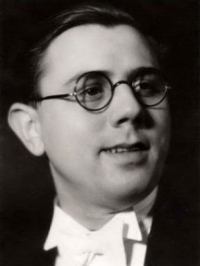
Jaroslav Jezek (September 25, 1906 - January 1, 1942) was a Czech composer, pianist and conductor, author of jazz, classical, incidental and film music.Ježek was born in the Prague quarter of Žižkov to the family of a tailor. He was almost blind from a young age. He studied composition at the Prague Conservatory as a pupil of Karel Boleslav Jirák (1924–1927), at the master school of composition with Josef Suk (1927–1930)
Mark Lamberg
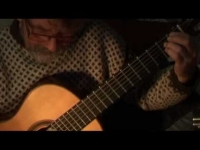
Mark Lambert (born January 19, 1952) is an American actor and singer.After moving to Los Angeles, Lambert made a single episode appearance of Room 222. He went on to guest star in a variety of television shows, including The Mod Squad, The Partridge Family, and Ironside. He made his Broadway-theatre début in New York City originating the role of Henrik Egerman in the musical-theatre production of A Little Night Music (1973-74) with music and lyrics by Stephen Sondheim and book by Hugh Wheeler. After Night Music closed, Lambert moved back to California and appeared in feature films and television productions.
Sain seiya
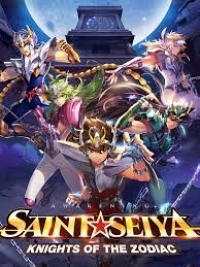
Saint Seiya, also known as Saint Seiya: Knights of the Zodiac or simply Knights of the Zodiac, is a Japanese manga series written and illustrated by Masami Kurumada. It was serialized in Shueisha's shōnen manga magazine Weekly Shōnen Jump from 1986 to 1990, with its chapters collected in twenty-eight tankōbon volumes.
Felix Mendelssohn

Jakob Ludwig Felix Mendelssohn Bartholdy, born, and generally known in English-speaking countries, as Felix Mendelssohn (February 3, 1809 – November 4, 1847) was a German composer, pianist, organist and conductor of the early Romantic period.
The grandson of the philosopher Moses Mendelssohn, he was born into a notable Jewish family, although he himself was brought up initially without religion, and later as a Lutheran. He was recognized early as a musical prodigy, but his parents were cautious and did not seek to capitalise on his abilities. Indeed his father was disinclined to allow Felix to follow a musical career until it became clear that he intended to seriously dedicate himself to it.
Early success in Germany was followed by travel throughout Europe; Mendelssohn was particularly well received in England as a composer, conductor and soloist, and his ten visits there, during which many of his major works were premiered, form an important part of his adult career. His essentially conservative musical tastes however set him apart from many of his more adventurous musical contemporaries such as Liszt, Wagner and Berlioz. The Conservatory he founded at Leipzig became a bastion of this anti-radical outlook.
Mendelssohn's work includes symphonies, concerti, oratorios, piano and chamber music. He also had an important role in the revival of interest in the music of Johann Sebastian Bach. After a long period of relative denigration due to changing musical tastes and antisemitism in the late 19th and early 20th centuries, his creative originality is now being recognized and re-evaluated. He is now among the most popular composers of the Romantic era.
The grandson of the philosopher Moses Mendelssohn, he was born into a notable Jewish family, although he himself was brought up initially without religion, and later as a Lutheran. He was recognized early as a musical prodigy, but his parents were cautious and did not seek to capitalise on his abilities. Indeed his father was disinclined to allow Felix to follow a musical career until it became clear that he intended to seriously dedicate himself to it.
Early success in Germany was followed by travel throughout Europe; Mendelssohn was particularly well received in England as a composer, conductor and soloist, and his ten visits there, during which many of his major works were premiered, form an important part of his adult career. His essentially conservative musical tastes however set him apart from many of his more adventurous musical contemporaries such as Liszt, Wagner and Berlioz. The Conservatory he founded at Leipzig became a bastion of this anti-radical outlook.
Mendelssohn's work includes symphonies, concerti, oratorios, piano and chamber music. He also had an important role in the revival of interest in the music of Johann Sebastian Bach. After a long period of relative denigration due to changing musical tastes and antisemitism in the late 19th and early 20th centuries, his creative originality is now being recognized and re-evaluated. He is now among the most popular composers of the Romantic era.
Jason Mraz

Jason Thomas Mraz (born June 23, 1977) is a singer-songwriter, born and raised in Mechanicsville, Hanover County, Virginia, a suburb of Richmond.
Mraz is an eclectic artist with multiple and varied stylistic influences, including pop, rock, folk, jazz, and hip hop. He has played with various artists, including The Rolling Stones, Bob Dylan, Dave Matthews Band, James Blunt, Gavin DeGraw, Paula Cole, John Popper, Alanis Morissette, The Ohio Players, Rachael Yamagata, James Morrison, Jewel and Colbie Caillat.
Mraz is an eclectic artist with multiple and varied stylistic influences, including pop, rock, folk, jazz, and hip hop. He has played with various artists, including The Rolling Stones, Bob Dylan, Dave Matthews Band, James Blunt, Gavin DeGraw, Paula Cole, John Popper, Alanis Morissette, The Ohio Players, Rachael Yamagata, James Morrison, Jewel and Colbie Caillat.
Carlos Gardel

Carlos Gardel (11 December 1890 – 24 June 1935) was a singer, songwriter and actor, and is perhaps the most prominent figure in the history of tango. The unerring musicality of Gardel's baritone voice and the dramatic phrasing of his lyrics made miniature masterpieces of his hundreds of three-minute tango recordings. Together with lyricist and long-time collaborator Alfredo Le Pera, Gardel wrote several classic tangos, most notably "Mi Buenos Aires querido", "Por una cabeza" and "El día que me quieras".
Gardel died in an airplane crash at the height of his career, becoming an archetypal tragic hero mourned throughout Latin America. For many, Gardel embodies the soul of the tango style. He is commonly referred to as "Carlitos", "El Zorzal" (The Song Thrush), "The King of Tango", "El Mago" (The Magician) and "El Mudo" (The Mute).
Gardel died in an airplane crash at the height of his career, becoming an archetypal tragic hero mourned throughout Latin America. For many, Gardel embodies the soul of the tango style. He is commonly referred to as "Carlitos", "El Zorzal" (The Song Thrush), "The King of Tango", "El Mago" (The Magician) and "El Mudo" (The Mute).
ABBA

ABBA was a Swedish Eurovision Song Contest-winning pop music group active between 1972 and 1982. Benny Andersson, Björn Ulvaeus, Anni-Frid Lyngstad (Frida), Agnetha Fältskog are in ABBA. They topped the charts worldwide from the mid-1970s to the early 1980s. The name "ABBA" is an acronym formed from the first letters of each of the group member's given name (Agnetha, Björn, Benny, Anni-Frid).
ABBA gained immense international popularity employing catchy song hooks, simple lyrics, and a Wall of Sound achieved by overdubbing the female singers' voices in multiple harmonies. As their popularity grew, they were sought-after to tour Europe, Australia, and North America, drawing crowds of near-hysterical fans ("ABBAholics"), notably in Australia. Touring became a contentious issue, being particularly unpopular with Agnetha, but they continued to release studio albums to great commercial success. At the height of their popularity, however, both marriages of the band members (Benny with Frida, and Björn with Agnetha) failed, and the relationship changes were reflected in their music, as they produced more thoughtful lyrics with different compositions.
They remain a fixture of radio playlists and are one of the world's best selling bands, having sold around 400 million records world wide; The music of ABBA has been re-arranged into the successful musical Mamma Mia! that has toured worldwide and a movie version was released in July 2008. All four of the former members of ABBA were present at the Stockholm premieres of both the musical (2005) and the film (2008). The film première took place at the Benny Andersson-owned Rival theatre at Mariatorget, Stockholm on 4 July 2008.
ABBA gained immense international popularity employing catchy song hooks, simple lyrics, and a Wall of Sound achieved by overdubbing the female singers' voices in multiple harmonies. As their popularity grew, they were sought-after to tour Europe, Australia, and North America, drawing crowds of near-hysterical fans ("ABBAholics"), notably in Australia. Touring became a contentious issue, being particularly unpopular with Agnetha, but they continued to release studio albums to great commercial success. At the height of their popularity, however, both marriages of the band members (Benny with Frida, and Björn with Agnetha) failed, and the relationship changes were reflected in their music, as they produced more thoughtful lyrics with different compositions.
They remain a fixture of radio playlists and are one of the world's best selling bands, having sold around 400 million records world wide; The music of ABBA has been re-arranged into the successful musical Mamma Mia! that has toured worldwide and a movie version was released in July 2008. All four of the former members of ABBA were present at the Stockholm premieres of both the musical (2005) and the film (2008). The film première took place at the Benny Andersson-owned Rival theatre at Mariatorget, Stockholm on 4 July 2008.
Julius Klengel
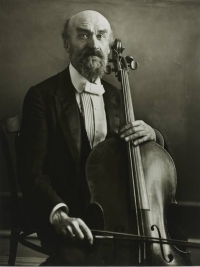
Julius Klengel is a German cellist who was born and died in Leipzig. He wrote etudes and solo pieces for the cello. In his youth, Klengel worked with Emil Hegar. After his 15th birthday, he joined a professional orchestra and went on tours in Europe and Russia. Klengel, also a soloist, gave several solo performances
Beatles

The Beatles were an English rock band formed in Liverpool in 1960. Their best-known lineup, consisting of John Lennon, Paul McCartney, George Harrison, and Ringo Starr, became the greatest and most influential act of the rock era, introducing more innovations into popular music than any other rock band of the 20th century. Rooted in skiffle and 1950s rock and roll, the Beatles later utilized several genres, ranging from pop ballads to psychedelic rock, often incorporating classical elements in innovative ways. In the early 1960s, their enormous popularity first emerged as "Beatlemania", but as their songwriting grew in sophistication, they came to be perceived by many fans and cultural observers as an embodiment of the ideals shared by the era's sociocultural revolutions.
The band built their reputation playing clubs in Liverpool and Hamburg over a three-year period from 1960. Manager Brian Epstein moulded them into a professional act and producer George Martin enhanced their musical potential. They gained popularity in the United Kingdom after their first modest hit, "Love Me Do", in late 1962. They acquired the nickname the "Fab Four" as Beatlemania grew in Britain over the following year, and by early 1964 they had become international stars, leading the "British Invasion" of the United States pop market. From 1965 on, the Beatles produced what many critics consider their finest material, including the innovative and widely influential albums Rubber Soul (1965), Revolver (1966), Sgt Pepper's Lonely Hearts Club Band (1967), The Beatles (1968), and Abbey Road (1969). After their break-up in 1970, they each enjoyed successful musical careers. Lennon was shot and killed in December 1980, and Harrison died of lung cancer in November 2001. McCartney and Starr remain musically active.
The band built their reputation playing clubs in Liverpool and Hamburg over a three-year period from 1960. Manager Brian Epstein moulded them into a professional act and producer George Martin enhanced their musical potential. They gained popularity in the United Kingdom after their first modest hit, "Love Me Do", in late 1962. They acquired the nickname the "Fab Four" as Beatlemania grew in Britain over the following year, and by early 1964 they had become international stars, leading the "British Invasion" of the United States pop market. From 1965 on, the Beatles produced what many critics consider their finest material, including the innovative and widely influential albums Rubber Soul (1965), Revolver (1966), Sgt Pepper's Lonely Hearts Club Band (1967), The Beatles (1968), and Abbey Road (1969). After their break-up in 1970, they each enjoyed successful musical careers. Lennon was shot and killed in December 1980, and Harrison died of lung cancer in November 2001. McCartney and Starr remain musically active.
Tim Friedlander
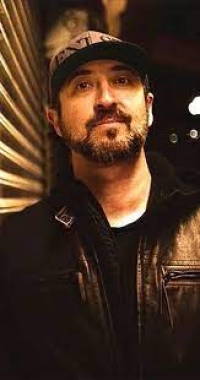
Tim Friedlander is an award winning, Los Angeles based Voice Actor specializing in Network Promo, Political Promo, Commercial, Narration, and Animation. He is best known for his work on Hunter x Hunter, One Punch Man, and as Long Caster in Ace Combat 7.
Rockstar (Band)
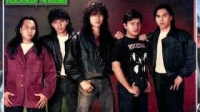
Rockstar Rock band Members Paul Sapiera,Hassel Suli Allan Sanmillan Rodel Agsallio Parting Time Mahal Pa Rin Kita · 1993.
Felix Bernard

Felix Bernard (1897 – 1944) was an American conductor, pianist and a composer of popular music. His writing credits include the popular songs Winter Wonderland (with lyricist Richard B. Smith) and Dardanella.
Aziza Mustafa Zadeh
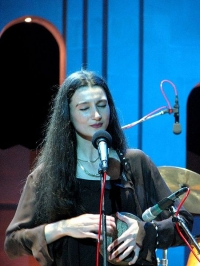
Aziza Mustafa Zadeh (Azeri: Əzizə Mustafazadə; born December 19, 1969) also known as The Princess of Jazz, or Die Prinzessin des Jazz or as Jazziza is an Azerbaijani singer, pianist and composer who plays a fusion of jazz and mugam (a traditional improvisational style of Azerbaijan) with classical and Avant-garde influences. Reviewers have said that her style also shows some influence from Keith Jarrett. She currently resides in Mainz, Germany with her mother, Eliza Mustafa Zadeh, who is also her manager. Her two favorite leisure activities, she says, are painting and sleeping. She is a vegetarian. Since 1991, Aziza sold around 15 million albums worldwide.
Antonio Carlos Jobim

Antonio Carlos Brasileiro de Almeida Jobim (January 25, 1927 in Rio de Janeiro – December 8, 1994 in New York City), also known as Tom Jobim, was a Grammy Award-winning Brazilian songwriter, composer, arranger, singer, and pianist/guitarist. A primary force behind the creation of the bossa nova style, Jobim is acknowledged as one of the most influential popular composers of the 20th century. His songs have been performed by many singers and instrumentalists within Brazil and internationally.
Jonas Brothers

Jonas Brothers is an American pop rock band from Wyckoff, New Jersey made up of three brothers: Kevin Jonas, Joe Jonas, and Nick Jonas. They have released three albums: It's About Time (2006), Jonas Brothers (2007), and A Little Bit Longer (2008).
Casting Crowns
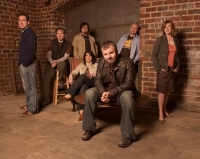
Casting Crowns is a Grammy award and Dove Award winning Christian band that employs a soft rock music style. The band was created in 1999 by youth pastor Mark Hall at First Baptist Church in Downtown Daytona Beach, Florida as part of a Youth Group. He also serves as a lead vocalist. Later they moved to McDonough, Georgia and more members joined creating the band now known as Casting Crowns. Some members of the band currently work as ministers for Eagles Landing First Baptist Church in McDonough, Georgia.
Discovered by, among others, contemporary Christian music legend Steven Curtis Chapman, Casting Crowns received a recording contract and vaulted to popularity in 2003 with their self-titled debut album Casting Crowns. The album quickly made them one of the fastest selling debut artists in Christian music history. Lifesong followed in 2005, debuting at #9 on the Billboard 200 Albums Chart. Both albums have been certified Platinum. The band's third album The Altar and the Door debuted at #2 on the Billboard 200 Albums Chart and #1 on the Hot Christian Albums chart upon its release in August 2007. Ten weeks after it came out it was certified Gold.
Casting Crowns has enjoyed tremendous success in the United States. They have released nine singles to date, seven of which have become consecutive number one hits on various Christian music charts. "Voice of Truth" spent a record-breaking fourteen consecutive weeks at #1 beginning in 2003. "Lifesong" spent nine weeks in the top spot, with "Praise You in This Storm" remaining at #1 for seven weeks. Casting Crowns broke their own record in 2007 when the single "East to West" from The Altar and the Door hit sixteen consecutive weeks at #1. The song ended up enjoying the top spot for a total of nineteen weeks, now their most successful single to date.
Discovered by, among others, contemporary Christian music legend Steven Curtis Chapman, Casting Crowns received a recording contract and vaulted to popularity in 2003 with their self-titled debut album Casting Crowns. The album quickly made them one of the fastest selling debut artists in Christian music history. Lifesong followed in 2005, debuting at #9 on the Billboard 200 Albums Chart. Both albums have been certified Platinum. The band's third album The Altar and the Door debuted at #2 on the Billboard 200 Albums Chart and #1 on the Hot Christian Albums chart upon its release in August 2007. Ten weeks after it came out it was certified Gold.
Casting Crowns has enjoyed tremendous success in the United States. They have released nine singles to date, seven of which have become consecutive number one hits on various Christian music charts. "Voice of Truth" spent a record-breaking fourteen consecutive weeks at #1 beginning in 2003. "Lifesong" spent nine weeks in the top spot, with "Praise You in This Storm" remaining at #1 for seven weeks. Casting Crowns broke their own record in 2007 when the single "East to West" from The Altar and the Door hit sixteen consecutive weeks at #1. The song ended up enjoying the top spot for a total of nineteen weeks, now their most successful single to date.
Andrea Ferrante

Andrea Ferrante (born 16 August 1968, Palermo, Italy) is an Italian composer whose music is performed throughout Europe, Asia and the Americas and published by Videoradio and Rai Trade Labels, Edizioni Carrara and Edizioni Simeoli. Edizioni Carrara and Edizioni Simeoli.
Guy Bergeron

Guy Bergeron was born the 13th of October 1964 in Loretteville, Province of Quebec, Canada. He graduated in music: in 1990, 3rd cycle in composition at the Conservatoire de musique of Quebec; in 1986, collegial grade (DEC) in pop music, Cegep of Drummondville, and in 1984, collegial grade (DEC) in music, Cegep of Ste-Foy, with guitar as first instrument. He was also a student in jazz interpretation from 1992 until 1994 at the University of Montreal (electric guitar) and he studied computer-assisted music at the Musitechnic School in Montreal. He plays the guitar (classical, electric, acoustic, synthesizer), the banjo, the mandolin and the bass. He's been earning his living with music for more than 25 years, as a professional musician, a composer, an arranger and also as a studio engineer as he manages his own studio.
Luis de Pablo
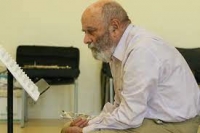
Luis de Pablo Costales (born 28 January 1930) is a Spanish composer belonging to the generation of Spanish composers named by Cristóbal Halffter as Generación del 51.Luis de Pablo was born in Bilbao. After losing his father in the Spanish Civil War, he went with his mother and siblings to live in Madrid from age six. Although he started to compose at the age of 12, his circumstances made it impossible to consider an artistic career, and so he studied law at the Complutense University of Madrid. For a short time after graduating in 1952, he was employed as legal advisor to Iberia Airlines, but soon resigned this post in order to pursue a career in music. Although he received composition lessons from Maurice Ohana and Max Deutsch, he was essentially an autodidact in composition. His participation at the Darmstädter Ferienkurse in 1959 led to the performance of some of his works under Boulez and Maderna.
Edouard Lalo
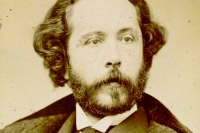
Eduard Lalo (full name: Édouard Victor Antoine Lalo) (born 27 January 1823 Lille, France – died 22 April 1892 Paris) is a French musician and opera composer. He studied at the Paris conservatory and graduated from the school with the second "Rome Prize". He became famous for playing the concerto of the famous violinist Sarasate in 1872, and his success was followed by various stage works and symphonies.Major operas; "Le Roi d'Ys" is "Savonarola", "La Jacquerie". In addition, the well-known "Symphonie Espagnole" composed for chamber music and church pieces, violin and orchestra inspired by the famous virtuoso Pablo de Sarasate is adorned with melodic inventions
Victor Bailey

Victor Bailey was an American bass guitar player. He was the bassist for Weather Report during their final years from 1982 to 1986, and launched a solo career in 1988. As a musician, Bailey was known for his signature scat-bass solos.
Tata Vega
Táta Vega (born Carmen Rosa Vega, October 7, 1951) is an American vocalist whose career spans theater, film, and a variety of musical genres.
Styx

Styx is an American rock band. Their hit songs have included "Come Sail Away", "Babe", "Lady", "Mr. Roboto", and "Renegade." Styx is the first band to have four consecutive albums certified multi-platinum by the RIAA.
From 1977 to 1981, Styx released four consecutive albums that have been certified Multi-Platinum (signifying at least 2 million units sold) by the RIAA: The Grand Illusion, Pieces of Eight, Cornerstone, and Paradise Theatre. They were the first band recognized to have achieved this feat when the RIAA began certifying Multi-Platinum albums in 1984.
A longstanding, oft-repeated claim in the music industry and the mainstream press is that Styx were the first band to release four consecutive triple-platinum albums, signifying at least 3 million units sold.
Current line-up:
James "J.Y." Young – Vocals, guitar, keyboards
Tommy Shaw – Vocals, guitars, mandolin, autoharp, talkbox
Todd Sucherman – Drums, percussion, vocals
Lawrence Gowan – Vocals, keyboards, guitar
Ricky Phillips – Bass guitar, vocals
Chuck Panozzo – Bass guitar, vocals
From 1977 to 1981, Styx released four consecutive albums that have been certified Multi-Platinum (signifying at least 2 million units sold) by the RIAA: The Grand Illusion, Pieces of Eight, Cornerstone, and Paradise Theatre. They were the first band recognized to have achieved this feat when the RIAA began certifying Multi-Platinum albums in 1984.
A longstanding, oft-repeated claim in the music industry and the mainstream press is that Styx were the first band to release four consecutive triple-platinum albums, signifying at least 3 million units sold.
Current line-up:
James "J.Y." Young – Vocals, guitar, keyboards
Tommy Shaw – Vocals, guitars, mandolin, autoharp, talkbox
Todd Sucherman – Drums, percussion, vocals
Lawrence Gowan – Vocals, keyboards, guitar
Ricky Phillips – Bass guitar, vocals
Chuck Panozzo – Bass guitar, vocals
 Sheet Music Max is a site for those who wants to access popular sheet music easily,
letting them download the sheet music for free for trial purposes.
It's completely free to download and try the listed sheet music, but you have to delete the files after 24 hours of trial.
Don't forget, if you like the piece of music you have just learned playing,
treat the artist with respect, and go buy the original sheet music.
Sheet Music Max is a site for those who wants to access popular sheet music easily,
letting them download the sheet music for free for trial purposes.
It's completely free to download and try the listed sheet music, but you have to delete the files after 24 hours of trial.
Don't forget, if you like the piece of music you have just learned playing,
treat the artist with respect, and go buy the original sheet music.
